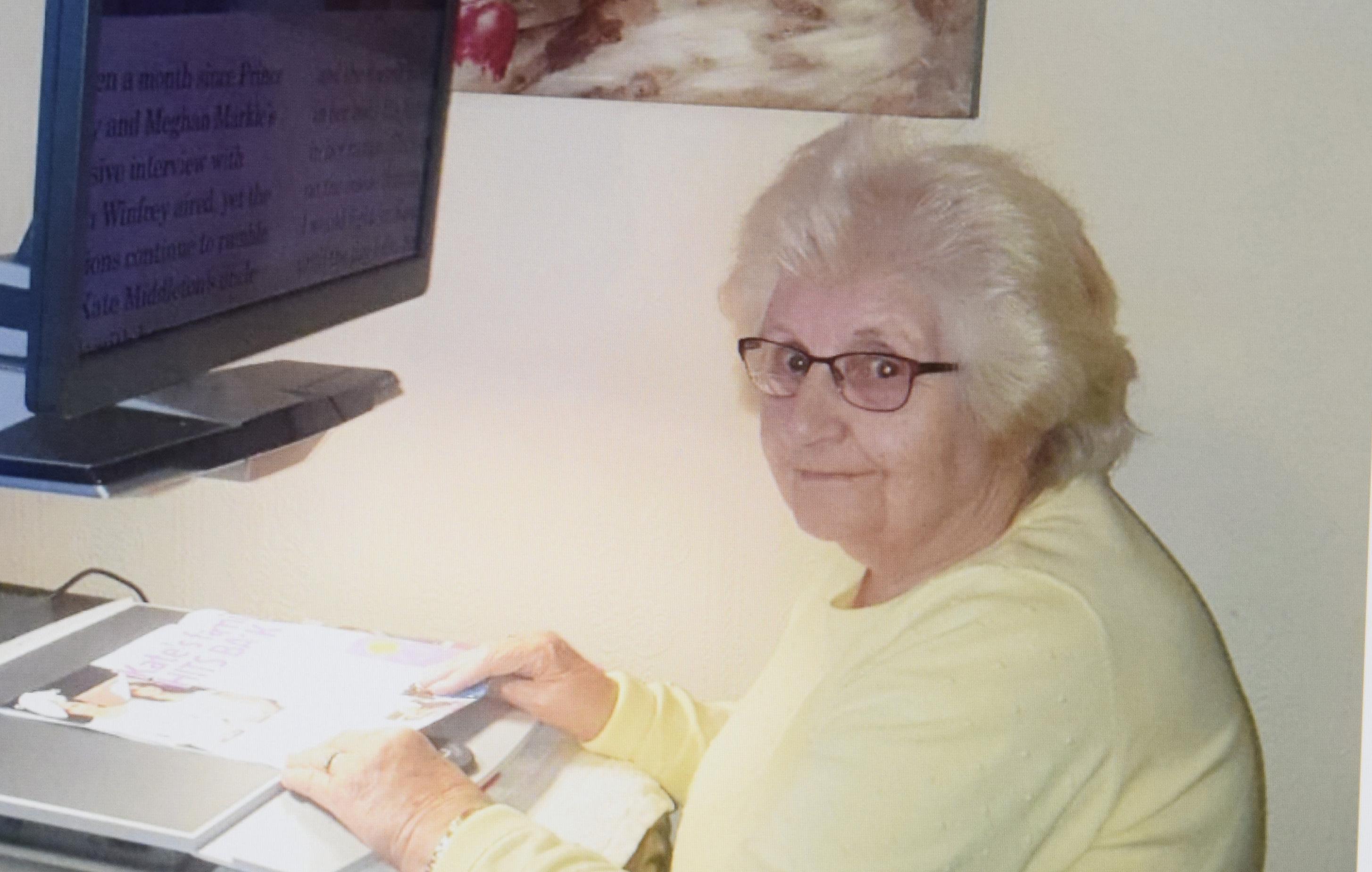
5 minute read
Community
In January 2021 we launched our first ever community-based services. These consist of the Family Wellbeing Service and local authority contracts for rehabilitation and mobility. These services are part of our commitment to reach more people impacted by sight loss across Scotland. We recognise that families play a huge part in supporting a loved one with sight loss. Our research shows that people with visual impairment can lose their confidence, selfesteem and ability to do many day-to-day activities. Families have concerns about how to best support their loved ones and don’t always have support for themselves, particularly at the first diagnosis stage. Our Community Services utilise the skills and knowledge we have across the charity to help provide advice and information, together with the emotional support needed by people who are affected by sight loss.
Family Wellbeing service
The Family Wellbeing service provides practical and emotional support to individuals with visual impairment, as well as their families, carers and friends. The Family Wellbeing service runs our freephone Support Line, which has been receiving calls since launching in January. The service has been promoted nationally via mailings to hospital-based Eye Clinic Liaison Officers (ECLOs) and professional eye health contacts. We are planning for further national promotion of the freephone Support Line through TV, radio and press coverage.
The Family Wellbeing service provides:
A freephone Support Line
Home visits (depending on lockdown restrictions)
Befriending
Online support, including videos
We received funding to support the Family Wellbeing service from the National Lottery Community Fund for three years from April 2021 onwards. We would like to thank everyone at the National Lottery Community Fund, and players of the National Lottery for their amazing support.
In 2020/21, we successfully won contracts to provide visual impairment support services to around 385 individuals in the City of Edinburgh, Midlothian and East Lothian local authority areas. The contracts involve the delivery of a rehabilitation and mobility service where, following a diagnosis of sight loss, individuals and their families can meet with our expert staff and be provided with support and advice. The City of Edinburgh Council contract started in April 2021 and will continue for three years with the option of an extension for a further two years. We estimate we will support around 275 people per annum through this contract. The three-year East Lothian and Midlothian contract also started in April 2021. We will assist around 110 people per annum through this contract. We will continue searching out opportunities to provide services to local authorities through direct tendering. We will also work to deepen our relationships with statutory agencies in other ways, promote our cause and become an active source of support and advice to local authorities and Integrated Joint Boards.
Rehabilitation and Mobility Officer Marie O’Donnell with Sight Scotland Veterans volunteer Michael McAllister
Sighted guide Sharon McAllister from our sister organisation Sight Scotland Veterans, with Marie O’Donnell and Koko the guide dog


Colin and Margaret’s story
Colin Fowler, 59, of Linlithgow, contacted our Support Line for advice on a magnification device for his mum. Colin’s mother Margaret has had macular degeneration for several years. The condition has made it a struggle for Margaret to read her favourite magazines. The Family Wellbeing team introduced Colin and Margaret to electronic magnification. Now, she’s delighted to catch up on reading about the royal family. Colin said: “There wasn’t much forthcoming support offered when my mum was diagnosed. We had bought some hand-held magnifiers in the past and they were of some use, but she could only see so much with them and they weren’t really the best to help her reading. “My mum’s now been trying out an electronic magnifier and it’s a great bit of equipment. She’s really pleased. As a relative and a carer, I found the service very reassuring. Anita, the Community Worker, was always very prompt at getting back to me and there was excellent communication.”
Margaret, who loves using her new electronic magnifier.

Wilma’s story
Wilma calls our Support Line about the visual hallucinations she experiences as a result of her sight loss. The 84-year-old widow regularly has phone calls with our Community Worker, Debbie, through our Support Line. “We have a good blether about anything and everything. We talk about our families, about our week and things we remember,” Wilma said. Wilma experiences Charles Bonnet Syndrome. This causes her to see visual hallucinations, even though she is blind. The condition affects many people with vision loss, regardless of their age. Wilma calls our Support Line and tells Debbie all about the hallucinations she experiences. “Normally, I cannot see anything. I can only sense the brightness of the light coming through the window. “But sometimes, I’ll see tiny people. I’ll see the whole person and their heads will be right in front of me. Other times, I’ll see buses and trams. They’ll be tiny and weird looking, in the distance,” Wilma said. “If you don’t know about Charles Bonnet Syndrome, the hallucinations can frighten you. I’ve discovered if I move my head around, the people I’m seeing will move around too, and then vanish.” Wilma loves to think up little poems and share them with Debbie. She recently composed a poem on Charles Bonnet Syndrome. Wilma

Wilma’s poem about Charles Bonnet Syndrome:
The Charles Bonnet Syndrome Can give you quite a fright: You can start seeing things, When you lose some of your sight. The brain always wants a picture And when it doesn’t get it from your eyes, It makes an image up: Now isn’t that a surprise. If you see pictures you do not like, Just keep turning your head. Then the things will vanish, And you can go to bed.
Debbie, our Community Worker, provides people like Wilma with advice and emotional support.









